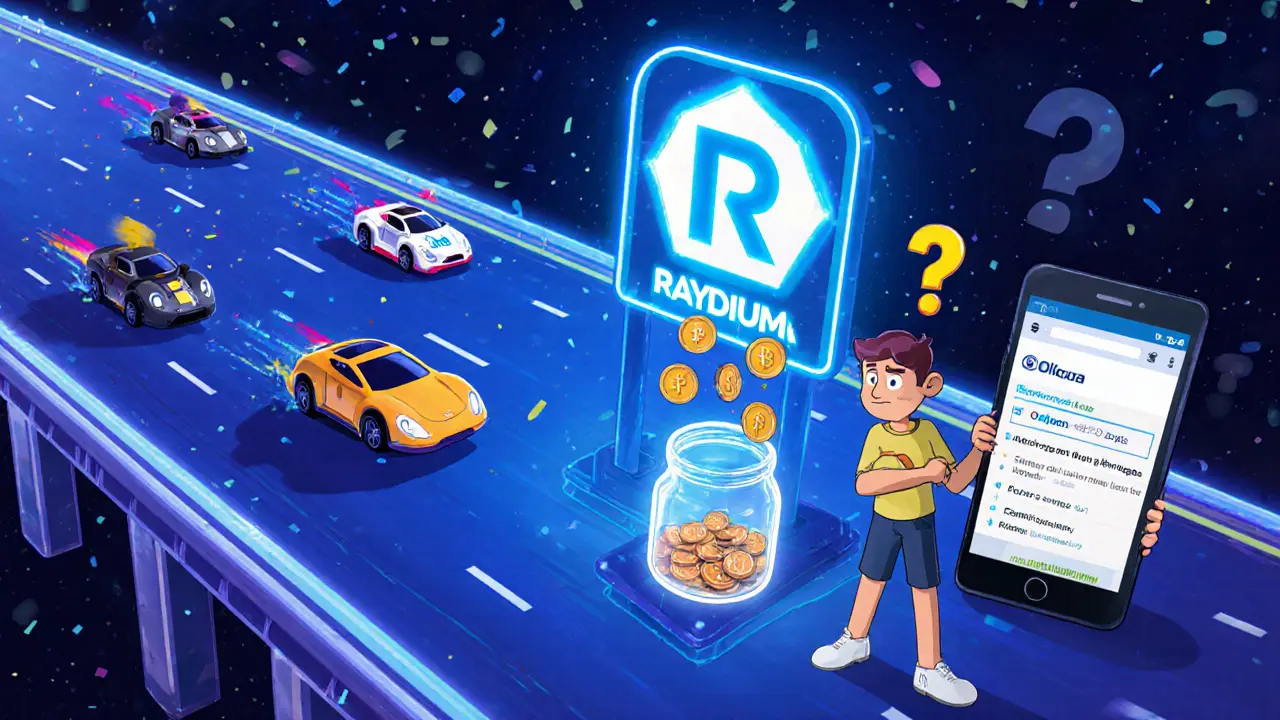Solana Crypto Exchange: Best Platforms, Risks, and What You Need to Know
When you trade on a Solana crypto exchange, a blockchain-based trading platform built on the Solana network that supports fast, low-cost transactions and native token swaps. Also known as a Solana DEX, it lets you trade tokens without relying on big centralized brokers—making it ideal for users who want speed and control. Unlike Ethereum-based exchanges that can get slow and expensive, Solana exchanges handle thousands of trades per second with fees under a penny. That’s why so many new tokens—especially meme coins like DOGS Solana and Pickle Rick (PRICK)—launch directly on Solana exchanges instead of waiting for listings on Binance or Coinbase.
But not all Solana crypto exchanges are built the same. Some are fully decentralized, like Jupiter and Raydium, where you control your keys and swap directly from your wallet. Others are hybrid, offering both order-book trading and automated market makers, like Orca or Serum. Then there are the shady ones—platforms that look legit but have fake volume, hidden fees, or rug-pull tokens. You’ll find reviews of real platforms like SatoExchange and ZBG in the posts below, showing you exactly what’s working and what’s not. What matters isn’t just which exchange you use, but whether it’s safe, has real liquidity, and supports the tokens you actually want to trade.
Behind every Solana crypto exchange is a web of related tools and risks. Solana meme coins, highly speculative tokens built on Solana with little to no utility, often launched as social media trends. Also known as Solana-based memecoins, they include DOGS, PRICK, and BNBTIGER—projects that can spike overnight but vanish just as fast. These coins rely on hype, not fundamentals, and most fail within weeks. Then there’s Solana DEX, a decentralized exchange built natively on Solana that uses automated market makers to enable peer-to-peer trading without intermediaries. These are the engines behind the ecosystem, and choosing the right one affects your slippage, fees, and security. And don’t forget wallet safety—software wallets like Phantom and Solflare are your first line of defense. If you lose your seed phrase, you lose everything. No customer support can recover it.
What you’ll find in the posts below isn’t just a list of exchanges. It’s a real-world guide to what’s working on Solana right now: which platforms have real volume, which tokens are traps, and how to avoid getting ripped off. You’ll see reviews of exchanges like SatoExchange and ZBG, deep dives into meme coins like DOGS and PRICK, and breakdowns of how Solana’s speed changes the game for traders. Whether you’re new to crypto or you’ve been trading for years, this collection cuts through the noise and gives you the facts you need to trade smarter on Solana.
Raydium Crypto Exchange Review: Is This Solana DEX Worth Using in 2025?
Raydium is a fast, low-fee Solana-based DEX with deep liquidity but a rough user experience. Find out if it's worth using in 2025, who should avoid it, and how it compares to alternatives like Orca and Uniswap.
- 23
- Read More
